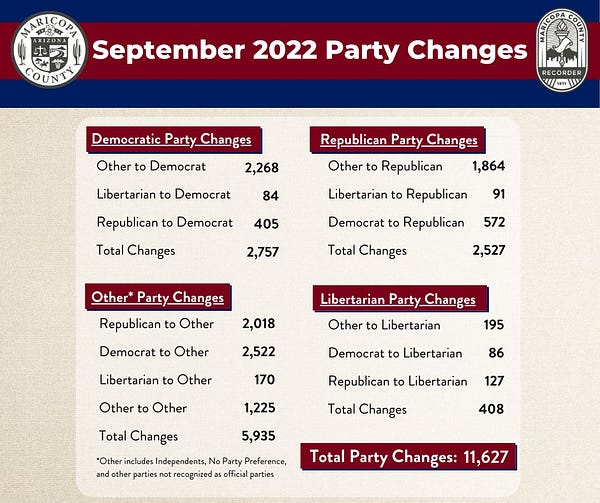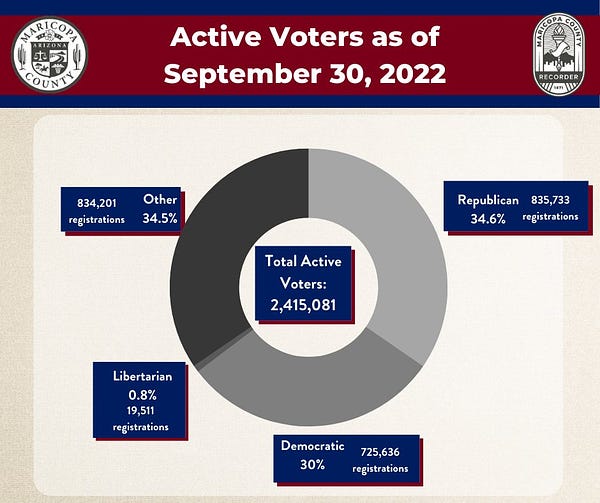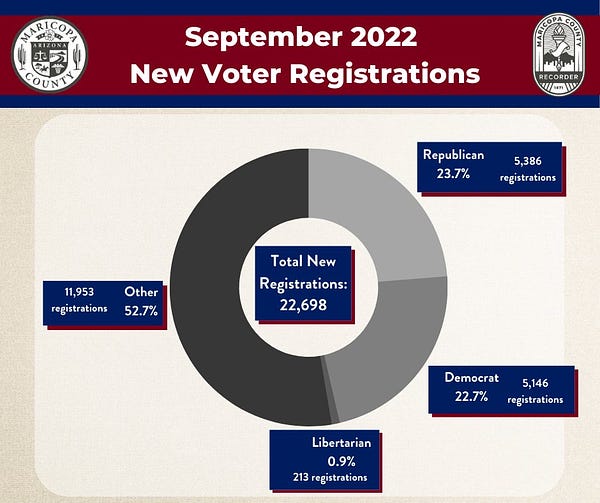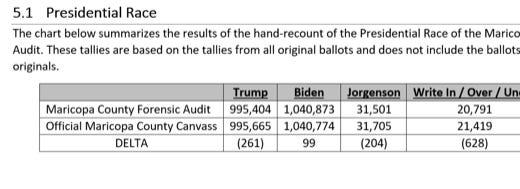
Discover more from Arizona Agenda
The Daily Agenda: The new school board elections
They ain't what they used to be ... Kari's TV free-for-all is tonight ... And some wild meetings about a hand count.
In case you missed it, our 64-week experiment in working our fingers to the bone writing this newsletter and just asking people to pretty please pay for it is coming to an end.
But breathe easy – we’re not closing up shop. We’re just putting up a paywall. We’ll still send our Friday original reporting to free subscribers, but to read most of the Daily Agenda, you’ll have to pay.
But you like reading the Daily Agenda! And you value local news and want to keep this little newsletter afloat.
So you can sign up now and get 30% off your first year. That’s just $84 for a whole year of two reporters sending you daily dispatches about the hottest state politics in the nation. Money well spent!
A pro-public schools group is pumping money into some Phoenix-area school board races, a move that would’ve been rare a few years ago in the previously low-key races for school overseers.
Elect Educators Everywhere — which supported 17 candidates in Wisconsin school board races this year, 15 of whom won — will spend $35,000 to boost 12 local candidates, largely with digital ads.
The group targets its spending toward competitive races and candidates who have experience as educators, plus those who align with values like supporting public school funding, protecting LGBTQ students and teaching history accurately.
The Phoenix-area campaign will start with three local candidates: Kerry Baker and Tony Pantera in Paradise Valley, and Marci Hutchinson in Mesa.

That $35,000 wouldn’t mean much in congressional or state legislative elections. But at the school board level, races remain relatively cheap, and a small amount of money can go a long way.
School boards often serve as a pipeline to higher office, too. State lawmakers often start on school boards (and sometimes remain on them while at the Legislature).
By now, you’ve heard that school boards, after COVID-19 and teachings about race and sexuality, have become much more heated. Meetings sometimes boil over, with parents (and non-parent agitators) trying to oust school board members. It’s now more common to see contested races — the Republic’s Renata Cló reports that this year’s races are mostly challenged, rather than walk-ons.
Nationally, conservative PACs have targeted school board races, the Associated Press reported yesterday. One group, the 1776 Project PAC, specifically attacks the idea that the New York Times’ 1619 Project can be taught in schools. That PAC has spent in races in several states, though not in Arizona yet, as far as we can tell. And the New York Times recently featured a Texas-based Christian cell phone company, Patriot Mobile, and its spending on school board elections there.
We’ve seen local groups like Save Our Schools Arizona and Purple for Parents endorse candidates for these races, sometimes using their organizing to boost these candidates. But outside spending remains relatively rare at the school board level.
Still, school board races are lower-ticket, often low-information races. They provide a big opportunity for outside groups, which can spend a small amount of money to get their favored candidates elected in an information vacuum. We expect that these kinds of campaigns will only increase in years to come.
The debate that wasn’t: The Clean Elections debate between gubernatorial contenders Kari Lake and Katie Hobbs was slated for tonight, but since Hobbs isn’t showing up, it’ll just be free airtime for Lake. If you want a debate, you’ll have to use your imagination, the Republic’s Bill Goodykoontz writes, noting that the closest thing to a debate this year was that pair of individual “Face The Nation” appearances last week, and that was “pointless.”
Speaking of free air time: Lake could really use it, Politico notes, since she and a handful of other Republican gubernatorial contenders in toss-up states are barely on the airwaves (though they’re being backfilled by groups like the Republican Governors Association, which Gov. Doug Ducey chairs). Separately, Politico wrote about Lake’s disdain for the trappings of a conventional campaign, like consultants and fundraisers and polls and ads and stuff.
“I heard a rumor that campaigns need money to run ads. I don’t know if that rumor is true, but if it is then we have the reason why Kari Lake isn’t up on TV,” Barrett Marson, an Arizona Republican operative, told Politico.
Lawyers ain’t cheap: The Arizona Republican Party didn’t use its donors’ money to help support the state Senate’s audit, as it claimed it would. But it did use a bunch of donor money to help pay for AZGOP chair Kelli Ward’s legal bills in her lawsuit to block the Jan. 6 committee from getting her phone records and in the party’s most recent lawsuit against the county over hiring poll workers, the Washington Post reports as part of a story about how Donald Trump’s legal expenses have eaten up donor money to his PAC.
This news is actually fake: The Daily Beast looks into the fake newspaper Peter Thiel’s PAC is sending out to boost Blake Masters and conservative causes, alongside some jumbled local sports coverage. The benignly named “Grand Canyon Times” is part of a “network of conservative websites tailored to look like local news outlets,” and the news outlet identified 15 other such outlets in Arizona, like the “North Pima News” and “Tucson Standard.” They’re all run by Metric Media, run by Brian Timpone, and none of them follow any actual journalistic ethics.
ASU grads doing big things: The New York Times profiles Christina Bobb, the Trump lawyer and OAN personality who served as the chief propagandist for the Arizona Senate audit, as she has become enmeshed in the Justice Department’s investigation into classified documents at Mar-a-Lago. The piece includes a lovely little detour into the time she ran for Congress as an independent in California and eschewed campaigning or fundraising. And speaking of the classified documents situation, Trump’s claims at his Arizona rally this weekend that other presidents stole confidential documents are “nonsensical” and “chock full of ridiculousness and false equivalency to a degree remarkable even by his standards,” the Washington Post’s Aaron Blake writes.
They walk the line?: The Republic’s Richard Ruelas takes on the fine line that Turning Point USA — a nonprofit that has to stay from political activity — walks with its political activities through Turning Point Action, which does a whole lot of political activity.
We get it, the election is stark: The choice between Republican Tom Horne and Democrat Kathy Hoffman for superintendent of public instruction is “stark,” the Republic’s editorial board declared in its non-endorsement. But editorial board chief Elvia Diaz made her personal position more clear on KJZZ’s ”The Show,” saying Horne shouldn’t be superintendent again. Meanwhile Arizona Public Media notes the two candidates have “starkly different” philosophies.
Crossing the border for care: After Mexico decriminalized abortion last year, then the U.S. Supreme Court overturned Roe and created a patchwork of abortion access here, advocacy groups that help people seeking abortions in Mexico have gotten requests for assistance from people in the states, including Arizona, Beatriz Limón report in the Arizona Luminaria.

Lieutenant is hard to spell: Arizona voters will again get to weigh in on whether they want a lieutenant governor, a second-in-command position that would alter Arizona’s line of succession. Instead of the secretary of state moving up to governor if a governor resigns, dies or gets indicted, the lieutenant governor would. In this year’s iteration, Prop 131 would call for a joint gov-lt gov ticket. If passed, Arizona would join the overwhelmingly majority of states that have lieutenant governors. Check out this primer on the proposition from Cronkite News’ Tristan Richards.
How vulnerable is he?: U.S. Rep. Andy Biggs faces two challengers in November in the new Congressional District 5: Democrat candidate Javier Ramos and Independent candidate Clint Smith. Biggs, a far-right MAGA lawmaker who’s embraced election denialism since 2020, could turn off moderate Republican voters, who Smith, a former Republican and an attorney, is courting, 12News’ Joe Dana reports in a primer on the race. While it’s rare for an independent to be on the November ballot, the three-way race means Biggs is almost certain to pull off the win.
We made the big time: After Kirsten Engel, the Democratic nominee for Congressional District 6, told the Yellow Sheet Report last week that she never supported defunding the police, the National Republican Congressional Committee dug up a clip of her during a 2020 Clean Elections debate that Hank moderated saying she did support reducing police budgets to fund social programs and shift police responsibilities to social workers. Later in the debate, she added that while she wants to shift responsibilities, she didn’t support reducing police budgets.


Signed, the people who run elections: The Arizona Association of County Recorders came out against Prop 309, which would require Arizonans to write their drivers license number or last four digits of their social security numbers on their ballot envelopes, saying it’s unnecessary, burdensome and would disenfranchise thousands of voters. The group almost never supports or opposes ballot measures.
“Trust us, many thousands of voters already forget to sign the return envelope. These votes are not counted,” the recorders wrote.
ICYM 2014: Capitol scribe Howard Fischer explains the backstory and arguments over Prop 211, the Voters’ Right to Know Act, which would attempt to shine a light on dark money in campaigns.
Another kind of trafficking: Mexico filed a lawsuit in federal court against five Arizona gun shops — three in Tucson, one in Phoenix and one in Yuma — alleging that the gun shops are knowingly supplying arms to Mexican cartels, the Arizona Daily Star reports. The lawsuit attacks the practice of straw purchasers, who then provide the guns to cartels. Since gun laws in Mexico are super strict, guns usually enter the country from the U.S.
It’s legal to grow, too: Hardly anyone is buying medical marijuana anymore because you don’t need a medical card to buy weed, pot reporter David Abbott writes. Arizona is selling about $75 million of recreational cannabis per month, and about half of that in medical ganja (it’s the same tea, just medical is taxed less). And reefer brings in about $20 million per month in tax revenue for community colleges, public safety, roads and other needs.
The Cochise County Board of Supervisors held a long meeting yesterday to consider hand-counting all ballots after tabulating them using voting machines, a laughably bad (and expensive and time-consuming and less accurate) idea, especially to spring on people in the middle of an election. Check out this story on the potential hand county from Votebeat’s Jen Fifield for the details.
The supervisors still haven’t decided if they will vote in favor of a hand count, but the county attorney warned them the move is possibly illegal, though the person who brought the hand count idea to the board (who said he wasn’t a lawyer) disagreed.
Subscribe to Arizona Agenda
The Arizona Agenda makes you a smarter citizen. Get the free daily briefing that takes you behind the scenes in Arizona politics, to where the decisions are made.























